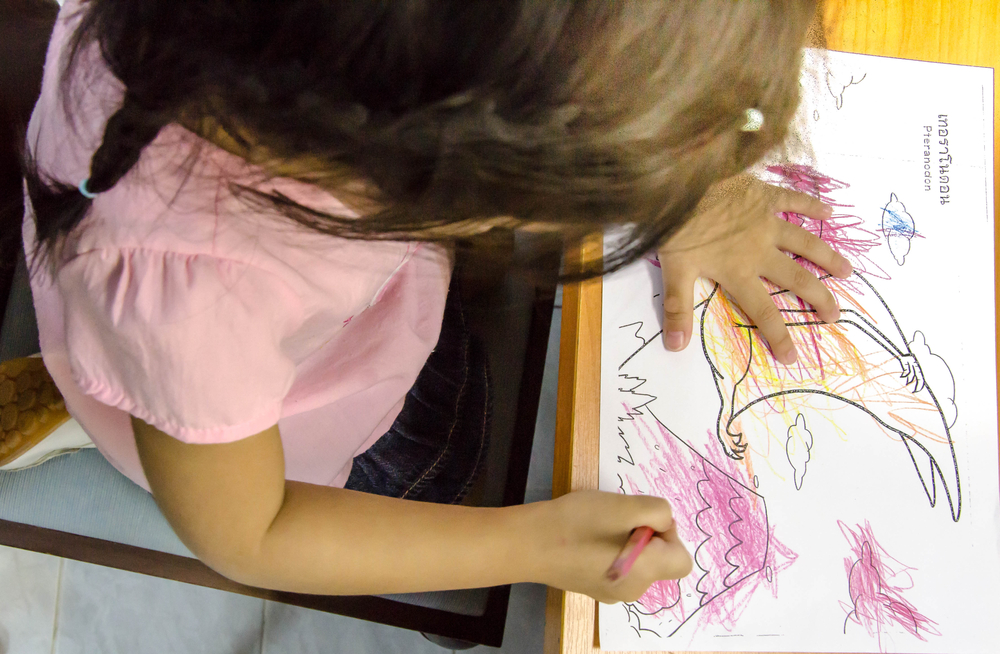Writing worksheets activities for Ages 4-8
8 filtered results
-
From - To
Enhance your child's writing skills with our engaging writing worksheets designed for ages 4-8. These carefully crafted activities promote creativity, comprehension, and fine motor development while making learning fun! From tracing letters to composing short sentences, our worksheets cater to various skill levels and learning styles. Each activity encourages self-expression and builds foundational writing skills essential for academic success. Additionally, our website offers downloadable resources for easy access and convenience. Watch your child's confidence soar as they explore the world of writing through these interactive and educational worksheets. Join us in making writing an enjoyable experience for young learners!
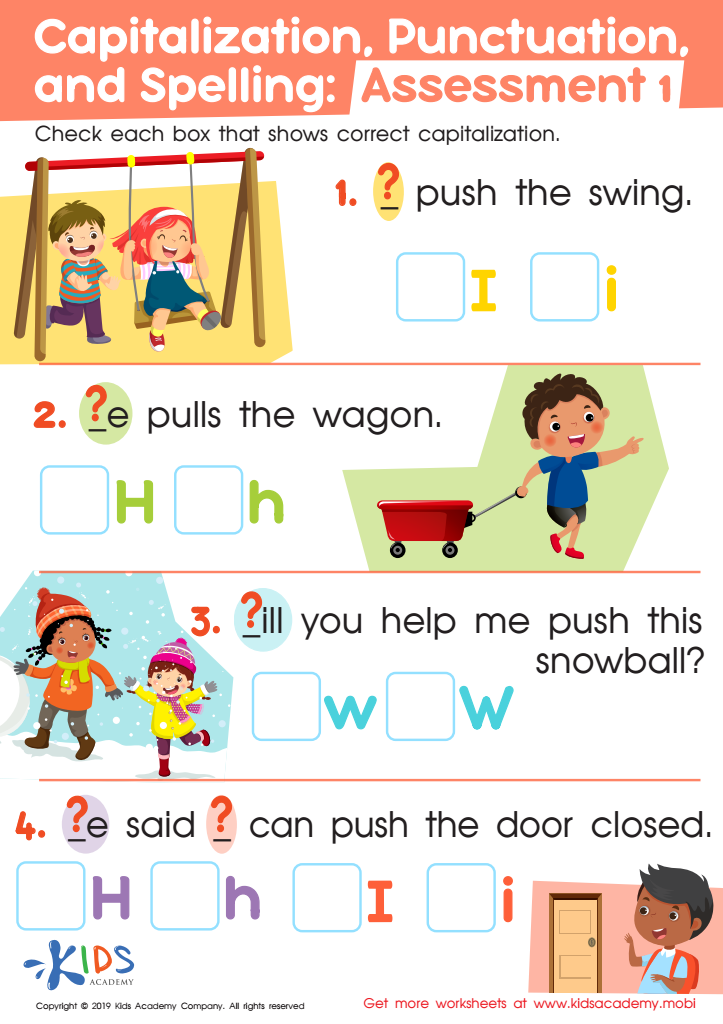

Capitalization. Punctuation. Spelling: Assessment 1 Worksheet
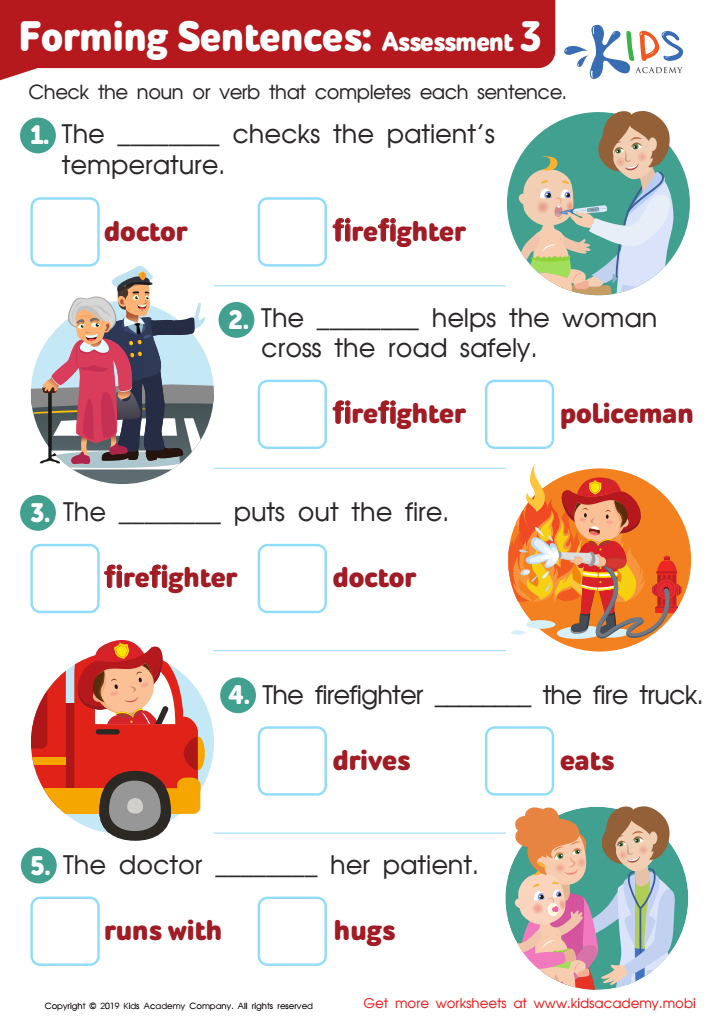

Forming Sentences: Assessment 3 Worksheet
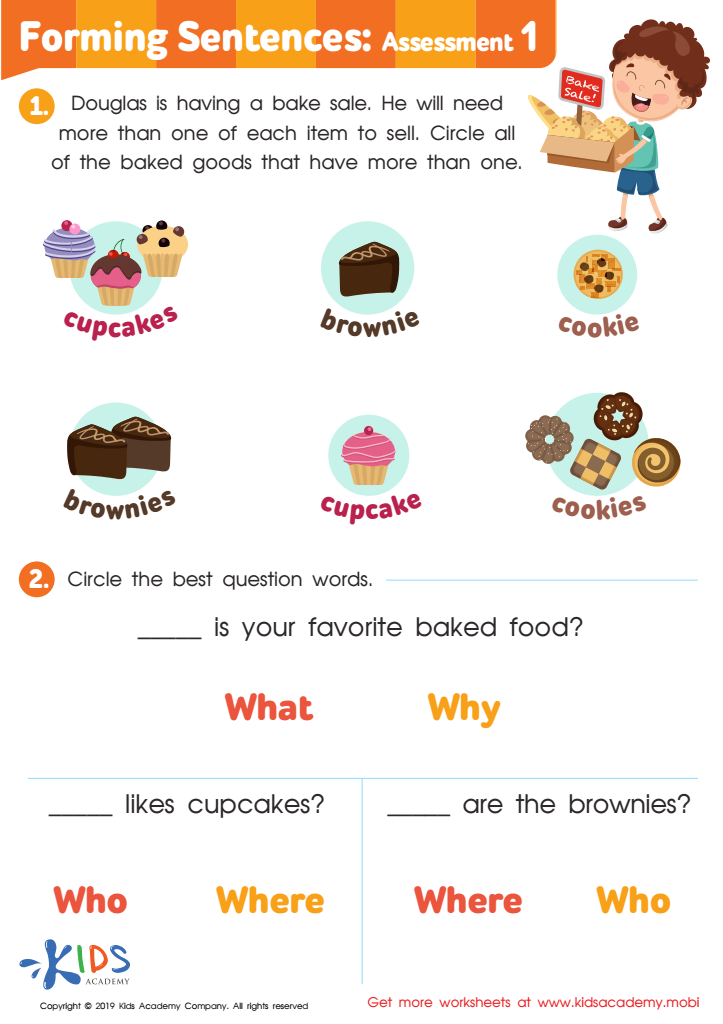

Forming Sentences: Assessment 1 Worksheet
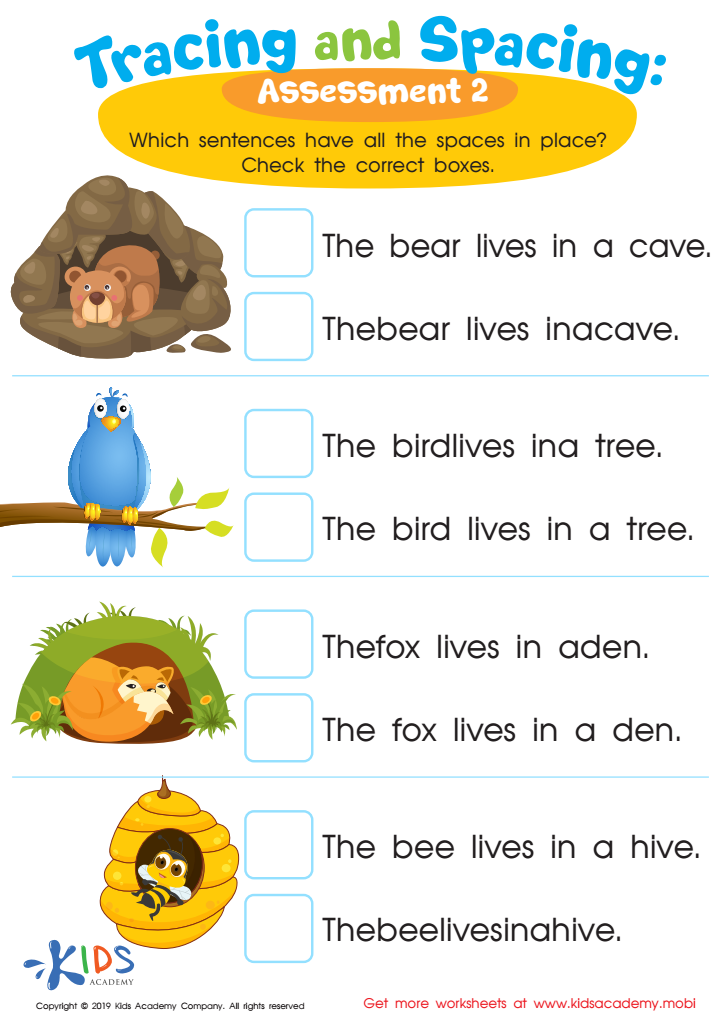

Tracing and Spacing: Assessment 2 Worksheet
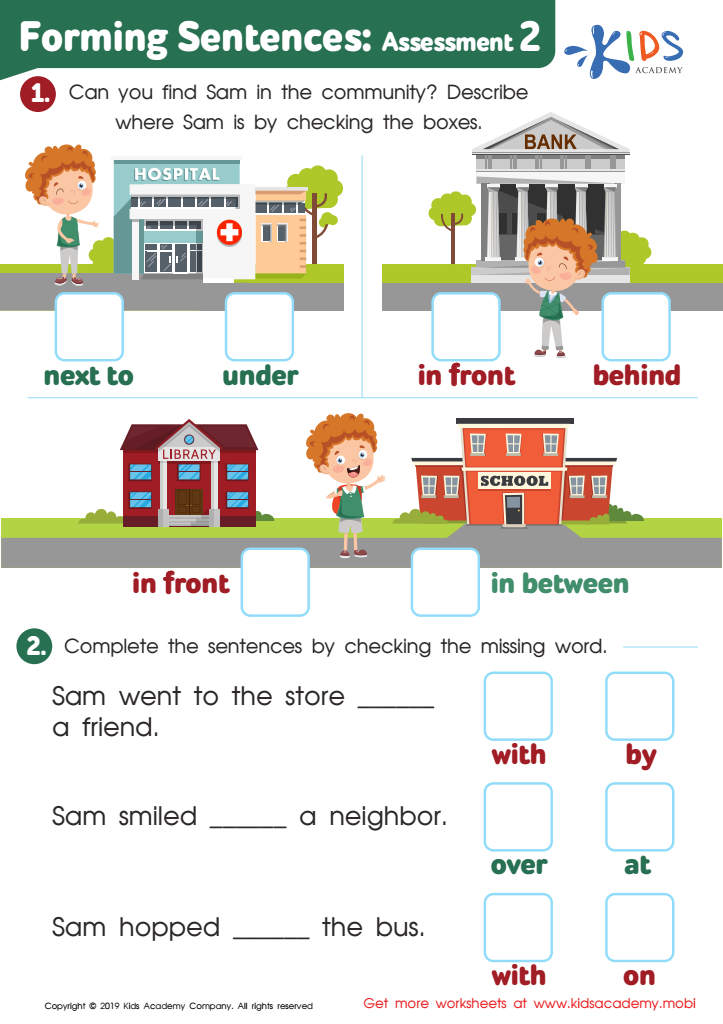

Forming Sentences: Assessment 2 Worksheet
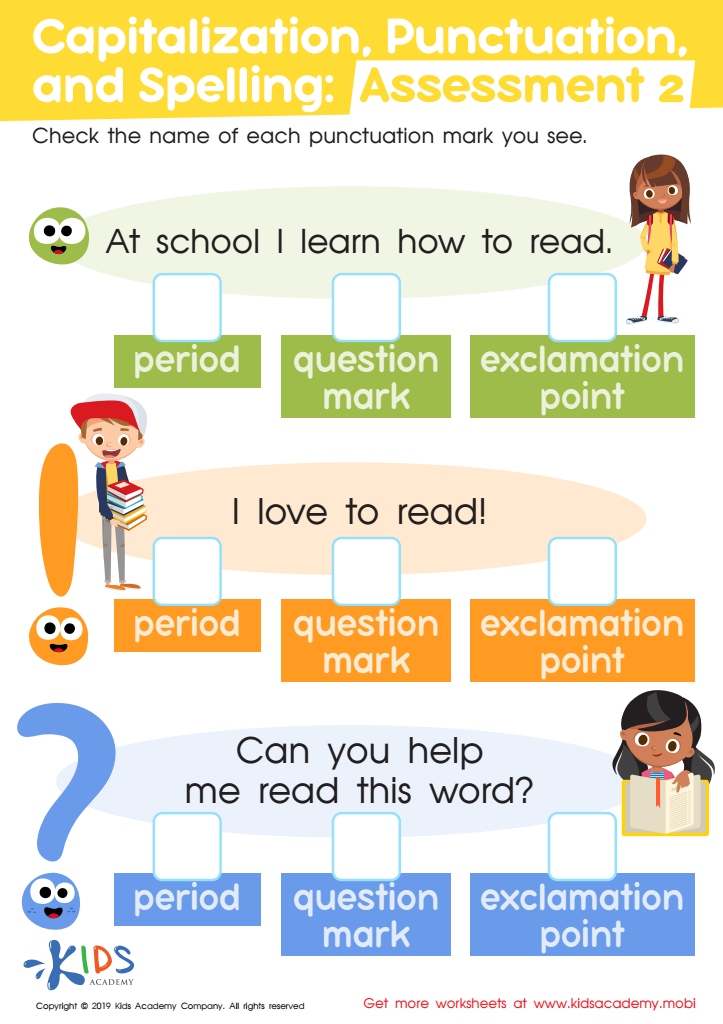

Capitalization. Punctuation. Spelling: Assessment 2 Worksheet
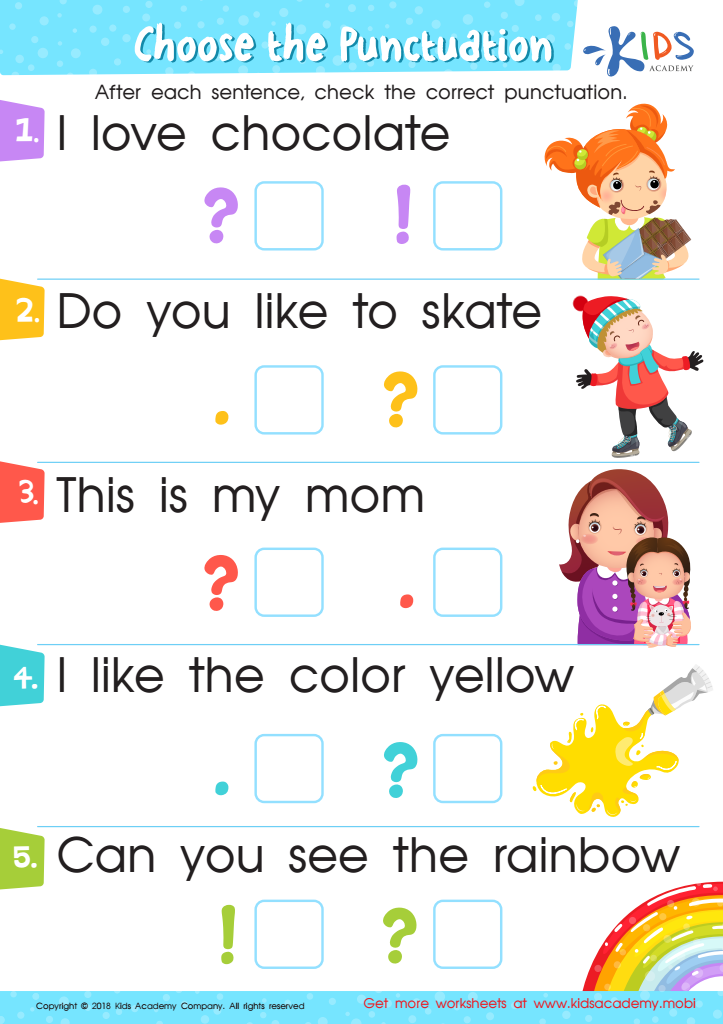

Choose the Punctuation: Assessment Worksheet
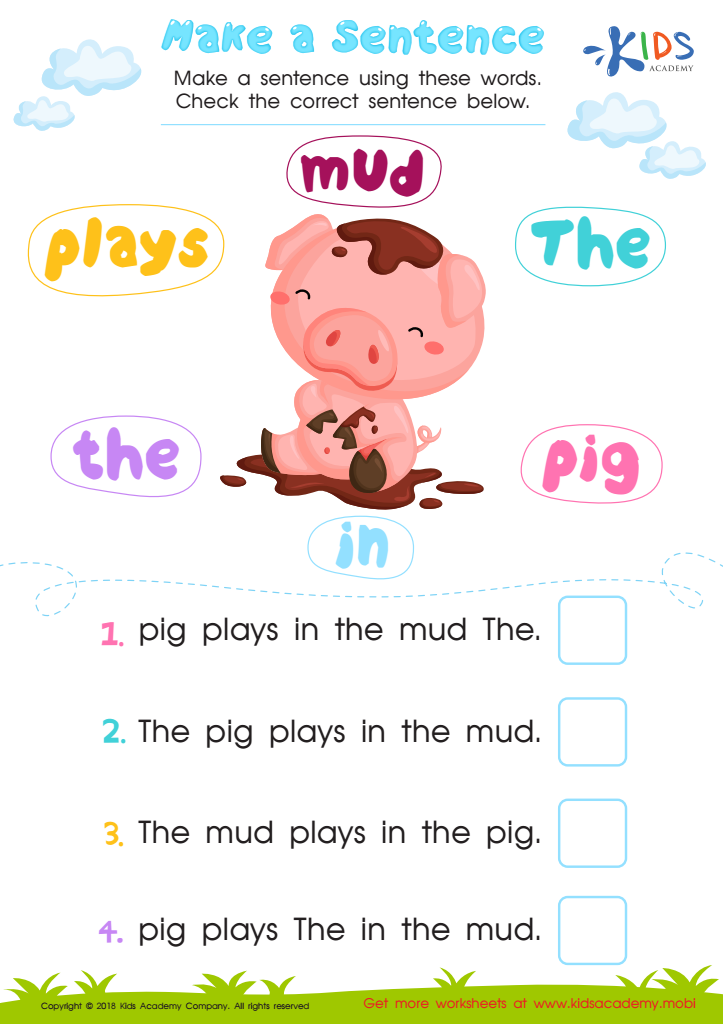

Assessment: Make a Sentence Worksheet
Writing activities for children aged 4-8 are crucial for their cognitive and emotional development, and they lay the foundation for essential literacy skills. At this age, children are naturally curious, and engaging them in writing helps foster that curiosity by encouraging them to express their thoughts and ideas creatively. Through writing, children strengthen their fine motor skills, which are vital for their overall physical development.
Moreover, writing enhances language acquisition and vocabulary development. As children practice formulating sentences and stories, they become more familiar with language structures, expanding their ability to communicate effectively. This early development of writing skills translates into improved reading abilities, as understanding the nuances of writing helps children decode text more efficiently.
Writing activities can also boost children’s confidence and self-esteem. When they share their stories or feelings through writing, they see their thoughts as valuable and worthy of expression, validating their voice. Additionally, for parents and teachers, facilitating writing activities provides opportunities for collaborative bonding, allowing caregivers to mentor and guide children in a supportive environment. Therefore, prioritizing writing activities is essential for nurturing young learners, helping them develop critical thinking and communication skills that will benefit them throughout their lives.
 Assign to My Students
Assign to My Students


